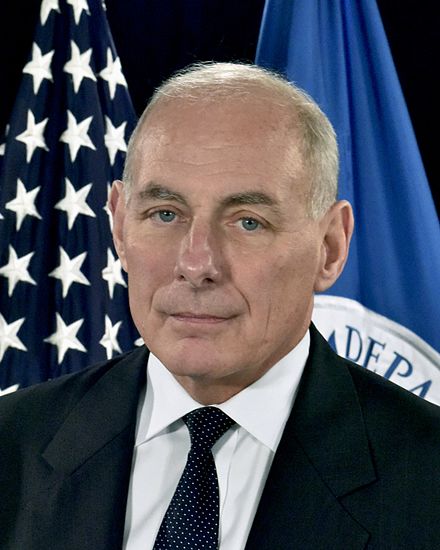
Members of the House Homeland Security Committee from both parties expressed opposition to the Trump administration’s proposed budget that would cut funding for training and deployment for local security programs by as much as 30 percent next year, even while the overall funding for the Department of Homeland Security (DHS) increases almost 7 percent – one of the few federal agencies targeted for a budget increase.
U.S. Rep. Peter King (R-NY) said the cuts would drastically affect security programs for first responders and other New York City departments, which, he said, perform many responsibilities that federal agencies perform elsewhere. “I really would not be able to support that,” King said during a hearing Wednesday where DHS Secretary John Kelly testified.
“How do we continue to keep borders safe with these cuts,” asked U.S. Rep. Donald Payne (D-NJ), of his state’s efforts to secure the ports of Elizabeth and Newark.
Kelly told lawmakers he hopes states and municipalities pick up any shortfalls in funding created by the cuts. DHS, he said, believes grants provided over recent years to train localities in counterterrorism have prepared many of the local government to take control of their own programs. “The thinking is, they’ve been trained,” said Kelly, “now the municipalities will pick up the slack.”
Kelly was testifying a second straight day on Capitol Hill, following Monday’s appearance before the Senate Homeland Security Committee.
The Trump proposal would increase the DHS budget for fiscal 2018 by $2.8 billion, to $44.1 billion, including funding for 500 new border patrol agents, 1,000 new Immigration and Customs Enforcement agents and beginning construction on a border wall, but cut grants to local and state agencies by $667 million for pre-disaster mitigation and counterterrorism funding.
The DHS secretary defended the Trump administration’s travel ban that is being challenged in the courts, insisting the ban “has nothing to do with religion, skin color or the way they live their lives” in the six countries targeted, but because those countries are “terror hotspots.”
“Because of the court injunction I’m not fully confident of our ability to protect the United States from those who would do us harm,” he said.
Kelly told the panel it was his decision to ban laptops on international flights coming from certain countries because he felt those countries do not have adequate security to uncover potential threats, like explosives hidden in laptops. He said DHS is considering an additional 71 airports from where laptops would be banned as carry-on luggage for U.S. flights. The additional sites will be discussed in meetings with the European Union next week, he added. DHS is also exploring a ban on lithium batteries, which are prone to explode in certain circumstances, he said.
Kelly said DHS has stepped up its efforts to get those living in the country without legal permission to leave the United States, but, he emphasized that ICE and other DHS agencies are focusing on people who are in the United States illegally or have some kind of violation, criminal or civil, outstanding. He said the agency is not targeting the Deferred Action for Child Arrivals (DACA) program now.




